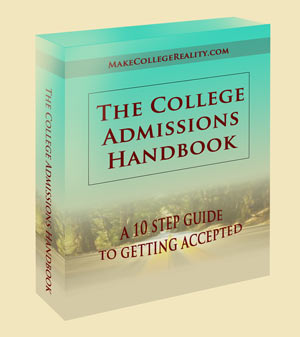 Choosing the one college that’s right for you among thousands isn’t easy. Once you find schools that meet your basic criteria, these considerations can further narrow down your choices.
Choosing the one college that’s right for you among thousands isn’t easy. Once you find schools that meet your basic criteria, these considerations can further narrow down your choices.
Cost: This isn’t a deal breaker is because there are so many ways to get money for college. Schools sometimes offer their own scholarships that you don’t even need to apply for. You won’t find out about this money until after you’ve applied. You should wait to decide if you can afford a college until after you receive your acceptance letter and financial aid package.
>>9 things you need to know about scholarships
Diversity: We all benefit from knowing people with backgrounds different than our own. However, finding diverse schools in small towns or rural areas won’t be easy. Diversity isn’t just about race or ethnicity – there’s also religious, class, and geographical diversity. If you’re a low-income, first generation, and/or student of color considering a school that’s mostly populated by white middle- or upper-class students, you might be eligible for more scholarships at those schools. But be warned that if you choose that college, you will likely be the token minority everywhere you go.
Academic rigor: I believe it’s best to choose a college that’s challenging. However, you have to find the balance that’s right for you. If it’s too hard or too boring, you might not be motivated to finish. Some students would rather be at the top of the class at a safety school than at the bottom of the class at a reach school. Or maybe you’d rather fall right in the middle.
>>Safety, match, and reach schools explained
Use of online classes and TAs: You’ll probably see more online classes and TAs at bigger schools, though you might find them at smaller ones too. Either can be a blessing or a curse. If you’re excited about online classes because you’ll never have to wake up to go to class, think again. They are usually more difficult than the face-to-face version because you have to be motivated to watch the lessons and study on your own. Using online classes as an easy way out is setting yourself up for failure. However, if you know you are a motivated student, having online classes will make your schedule more flexible.
Some schools actually have a TA (Teacher’s Assistant – usually a grad student) teach a class instead of the professor. However, most of the time, a TA will just monitor a lab or study group. The good thing about TAs is you’ll have more individualized attention and an extra chance to ask questions. The bad thing is that they are also graders, and it’s just the luck of the draw whether you’ll get an easy one or not. In a school that doesn’t use TAs as much, professors will grade your work and this makes your grades more predictable. Sometimes TAs might only grade homework and the professors will grade tests and final exams.
Housing: Every school has their own housing system. Some require you to live on campus all four years. Others have special arrangements just for freshman. Some guarantee housing and others will put you in a lottery. There may be special housing options like language or cultural dorms, apartments, or fraternities or sororities.
Support: College is hard and you shouldn’t have to do it alone. Smaller schools generally offer more support, but some large universities do have good support systems as well. Tutoring programs, availability of professors, and academic housing are all ways you can receive help academically. Graduation rates are also a good indicator of the level of support a school offers.
Quality of the program you’re interested in: Chances are you’ll change your major at least once so this should be a consideration, but make sure it isn’t the only deciding factor. If you choose a school for their top notch pre-law program but then decide you’d rather study business, you might be out of luck.
Facilities: Whether it’s state of the art computer labs, dance studios, or research facilities, having the best equipment available to you is always a plus. All colleges will tell you they have the biggest and the best, but unless you see them with your own eyes you won’t know for sure.
These are a lot of things to think about, so focus on a couple that really matter to you. For example, if you’d like to major in English literature, you may not care if the school built a new physics lab. Or if the housing system isn’t as important to you as diversity, then make sure your choice of school reflects that.
>>3 things you think matter, but don't
Prepare
Apply
Before you start
Choosing a college
Recommendations
Essays
Paying for college
Succeed


